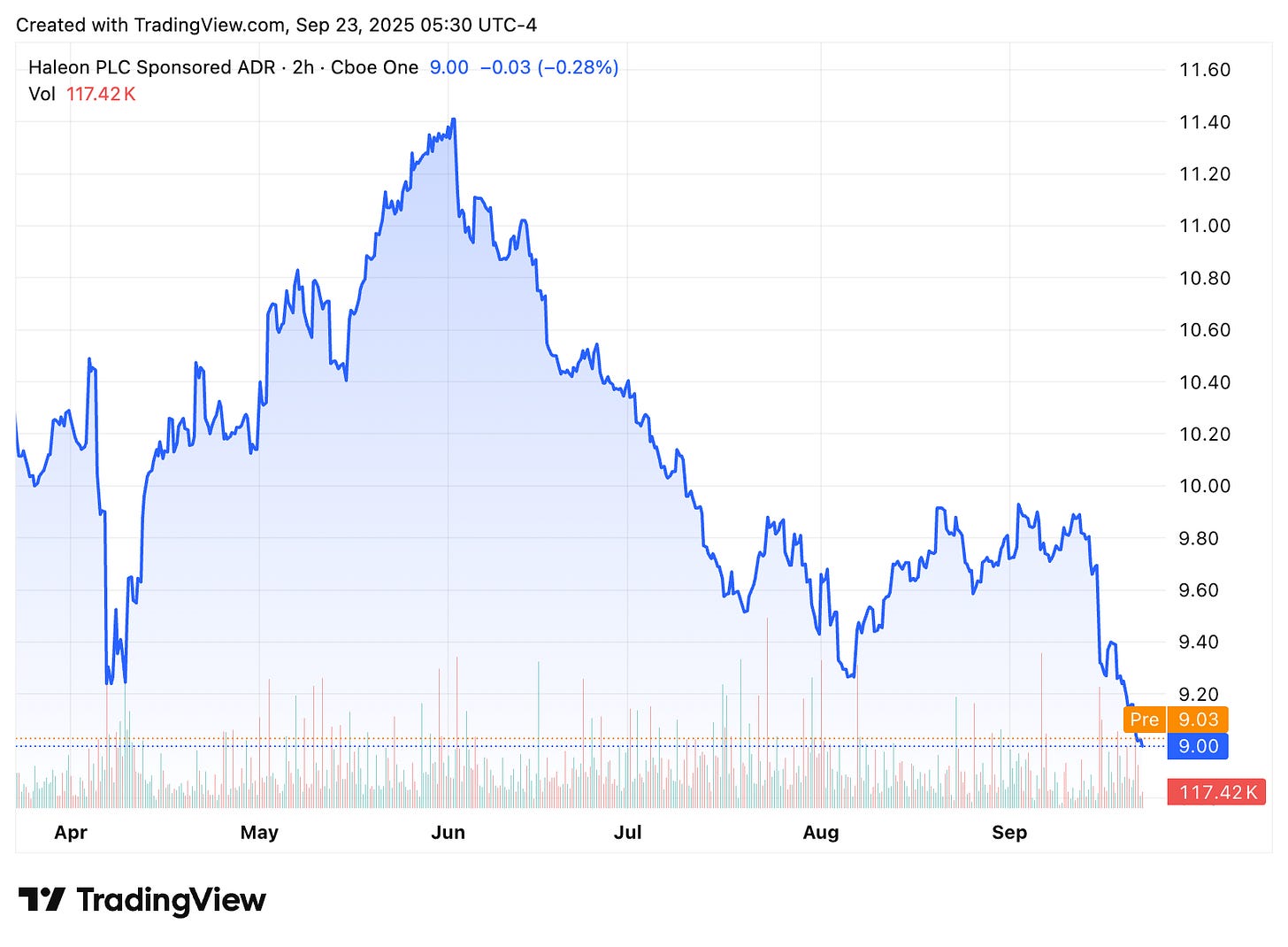When Tylenol Meets Uncertainty: Why Haleon (NYSE:HLN) Might Be the Pain-Relief Play Investors Missed
Tylenol under fire, Advil growing quietly — here’s why Haleon could benefit from shifts in over-the-counter drug sentiment.
Every few decades, a consumer health product that seems unshakable hits a credibility wall. Think tobacco in the ’90s, sugary sodas in the 2000s, and energy drinks getting hammered today. Now it’s Tylenol’s turn in the barrel.
The FDA is weighing new safety labels. Politicians are talking. Expectant mothers are whispering to each other about alternatives. It doesn’t take much for consumer sentiment to shift when the stakes are pregnancy, children, and health.
Meanwhile, Haleon — the consumer health giant spun out of GSK — has a stealth weapon in its arsenal: Advil. If acetaminophen loses trust, ibuprofen is the obvious alternative. Haleon’s portfolio (Advil, Voltaren, Panadol, Sensodyne, Centrum, Theraflu, and dozens of others) is diversified, profitable, and quietly benefiting from the storm swirling around its rival.
This is not about guessing science. It’s about positioning yourself where consumer behavior might go when uncertainty strikes. That’s why HLN deserves a closer look.
YTD Performance Snapshot (Q2 2025)
Stock Price: ~US $9.00 (NYSE: HLN)
Market Cap: ~US $41 billion
YTD Performance: Roughly flat vs. S&P +8%, Consumer Staples sector +3%
Revenue (FY 2024): £11.23 billion (~US$14.3B), +5% organic growth
Operating Margin: ~19.6%
Dividend Yield: ~2.5%, supported by strong free cash flow
Recent Moves: Announced share buybacks; continuing cost discipline in H1 2025
Translation? The market sees HLN as defensive, but maybe too boring. That could change if Tylenol’s headwinds accelerate.



